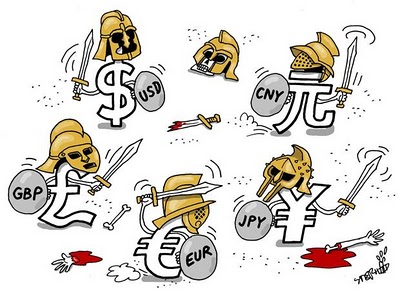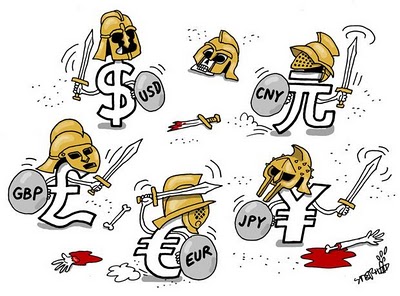– Nationalized Bankia To Post Largest Corporate Loss In Spanish History (ZeroHedge, Feb 21, 2013):
Just in case anyone is confused about how fixed Europe is, insolvent Spanish TBTF megabank, which F’ed last year and had to be bailed out by the government, will post earnings (and in this case we use the term very loosely) next week at which time it will report the biggest corporate loss in Spanish history. From Telegraph: “On Thursday Bankia will report full-year earnings, including a €12.6bn provision taken at the end of last year. The writedown is a result of the lender moving assets into Spain’s “bad bank” at heavy discounts. Bankia, which is seen as a symbol of Spain’s financial woes, was created through the merger of seven smaller savings banks before being listed on Madrid’s stock exchange. When the company failed, hundreds of thousands of people who had been sold shares saw their savings wiped out. The collapse forced Spain to ask Europe for a bailout for its banking sector, which has meant the lender is subject to tight controls. Bankia is trying to sell its 12pc stake in International Consolidated Airlines Group, the parent company of British Airways, which is valued at about £510m, and 5.3pc of the power company Iberdrola, which is worth about €1.24bn.”
Read moreNationalized Bankia To Post Largest Corporate Loss In Spanish History




